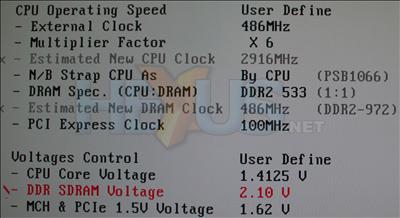Performance Results; Overclocking
We'll do as we did in the P5W64 WS Pro review and miss out a large chunk of the performance results for the AW9D Max. It's an i975X-based board like the P5WS64 WS Pro (and Intel D975XBX that we compared the WS Pro to), and it performs pretty much identically. With the X6800, 2GiB of memory at 4-4-4-12 and the same HDD, graphics and software build, results were mostly within a margin of error of each other. Therefore we only display the results which deviated to any abnormal degree.For reference, the AW9D Max ran the X6800 out of the box at just 2940MHz, 7MHz higher than the 2933MHz stock frequency by virtue of a 267.2MHz CPU bus frequency.
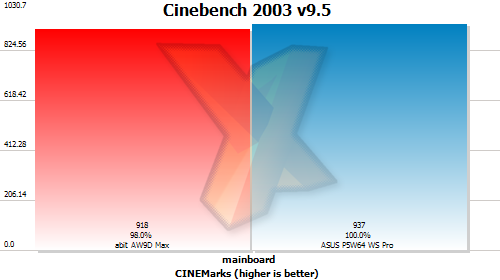
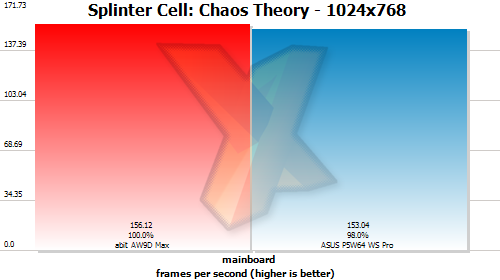
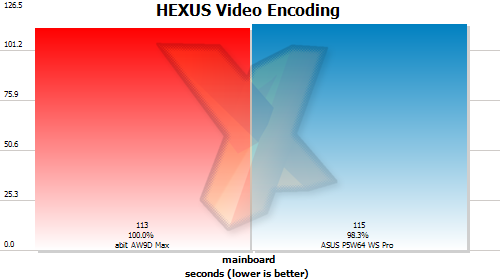
The abit is quicker in the video encoding test and in SC:CT, by a repeatable ~2% margin in both cases, but slightly slower in Cinebench 2003 v9.5. Otherwise they perform identically in our non-storage tests.
Storage wise, with both boards using the same ICH7R-based SATA and USB2.0 controllers, we found slight differences in their relative fixed- and enclosure-based disk performances that are worth noting. The differences are small, but they're repeatable and might make some difference to a prospective purchase.
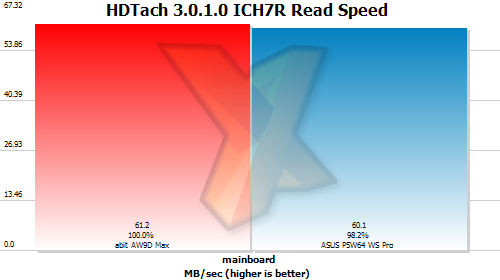
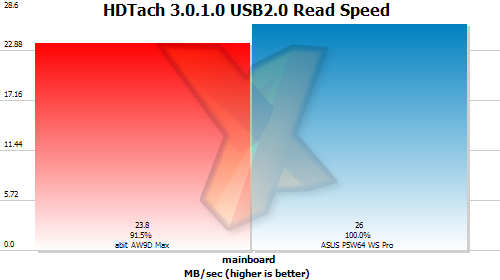
The abit is faster from a fixed disk in our tests, but slower over USB2.0 with a disk in an external enclosure.
Overclocking
Using the reference cooler, we attempted to find the maximum stable CPU bus overclock on the AW9D Max by dropping CPU multiplier to 6.0x and adjusting operating voltages and the bus frequency as high as we could, keeping memory frequency as low as possible. The DDR2-533 memory divider meant we ran 1:1 on a 266MHz bus strap. We managed 486MHz before things ran out of room, using the same 2 x 512MiB of Corsair PC2-8500 as we used with the P5W64 WS Pro.Not quite as good as the P5W64, but we're not convinced we found the absolute limits either. Nevertheless, close to 500MHz out of the box without any modification is great going, and we think there's probably more to be found on retail boards going by what others have managed to achieve.
The BIOS makes it a piece of cake to have a go anyway, which rocks.






